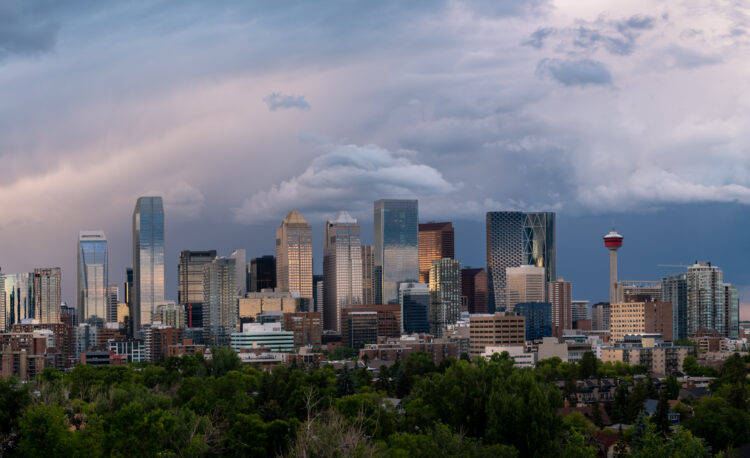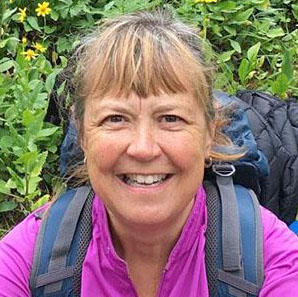Reflections on a meeting called by Mayor Jyoti Gondek, on the impact of the Middle East conflict on Calgary’s capacity to be a city that is safe and inclusive, where people can gather without fear. These reflections are respectfully submitted by Sarah Arthurs, executive director of the Calgary Interfaith Council. These are personal reflections, not policy or recommendations from the Calgary Interfaith Council.
First wave of reflections
In Community: the Structure of Belonging author Peter Block writes that an important contribution of elected officials is to convene people, citizens and representatives of the different expressions of our civic life to engage with emerging challenges and opportunities.
Block also states that every gathering is an expression of the future that we want. We can construct our shared time in ways that manifest the inclusive, kind, welcoming, generative future we long for. So the future is now!
I experienced this in the gathering hosted by Mayor Jyoti Gondek. We gathered in a circle on soft chairs (reminding us that we are soft bodies?)! There was water and chocolate! Kind women welcomed us, took our coats and inquired how we were. There was a flow of hellos and introductions, the reaching of hands across the space as we greeted old friends and introduced ourselves to strangers.
As the event proceeded, the mayor reminded us of our capacity to speak respectfully and to listen. She began by asking how Muslim and Jewish communities in Calgary are being impacted by the conflict in the Middle East and its expression here. She asked, how are people feeling? Yes, we are soft bodies.
I heard and saw shared themes from the Jewish and Muslim participants in the room. I saw the fullness they brought in their bodies, carrying the anger, grief, and anxiety of families, friends and fellow members of faith. I saw how they carried the stories of dear ones killed in Israel or Gaza, flickering images of rubble and children’s bodies, the names of hostages, the slogans of hate in Canada and the terrifying black hole of what is going to happen next and how long this is going to go on. I heard from both Muslims and Jews the feeling of being alone, that the rest of Calgary is not standing with them in this tragedy. We are not there for them.
I heard the city police explaining how the work they do of providing boundaries and parameters for public pronouncements and protests actually enables the important dynamic of speaking pain and articulating injustice publicly within the city. By holding the boundaries, they are helping to create the container for this expression of the life of our city. And there was challenge and energy about the fairness of recent decisions regarding public speech.
I saw the reaching of hearts to one another. I heard courageous statements of empathy, of knowing our shared humanity as we experience directly and witness through the all-pervasive presence of media and social media, the daily presence of death, destruction and desperation.
As the gathering came to a close — short in time, disproportionately large in intention and possibility — there were some tiny shifts, some small inklings of possibility.
The group struggled bravely to keep their attention on what is ours to do in Calgary. What possibilities do we have to ease the current rise of hate? There was the question of how to create spaces that enable a different narrative, a narrative that we aspire to as a city, a narrative that many of us came to Canada, to Calgary, to participate in and create: flourishing lives lived respectfully with neighbours of wonderful diversity and particularness.
We realized that Calgary is the place where we have the opportunity to do something, to create together the narrative we want to propel us forward; a narrative energized for many of us by our faith traditions, which call us to welcome a stranger and cultivate a heart of compassion.
Who will create the spaces? What will they look like? How will we extend inclusive welcoming invitations? There was discussion of an interfaith service, town halls and breaking bread as stepping stones to manifest the kind of city we desire, a city with a bias for kindness and generous welcome and enough space for delightful differences of so many kinds.
Second wave of reflections
In our secular, multicultural, multi-faith culture there are few shared spaces in which to do the work of community processing: of weeping with those who weep and rejoicing with those who rejoice. There are not many places to come together as neighbours to do the work of receiving/making meaning, of discovering agency in the midst of the fragile and fiercely emergent experience we have as human beings in community in an ever changing world.
How do we be with events like the conflict between Hammas and Israel and the impact of that conflict in our midst? What is the role of faith and interfaith institutions, elected officials, poets, artists and musicians? And what might collaboration look like?
We are impoverished in our capacity to grow through grief and trauma, uncertainty and change by the fact that the artistic expressions of our culture are often disconnected from the flow of our lived experience within the immediacy of the news cycle.
We need the arts to come alongside our suffering, deepen our understanding of what is happening, make space for grieving and discovering that we are not alone, for finding pathways to each other through the minefields.
Calling all poets, choirs, symphonies, artists, musicians and dancers to move us in our grief, fear and aloneness and enable us in our longing and acting for peace and flourishing!
Finally we need to move beyond anti-hate and anti-Semitism and Islamophobia. These words enable us to name things that cause violence, seed fear and warp our community, but they are not enough.
We need the words that speak us into the world we want: words of kindness, curiosity, compassion, openness, invitation, welcome and gratitude. As we create spaces inspired by these words and shaped by these aspirations, we will support a flourishing, inclusive community.
Imagine this event in each ward, hosted jointly by city councillors, a local interfaith committee and creatives:
Breaking Hearts and Breaking Bread — the shared language of silence, poems of lament and hope, prayer, words from our faith traditions that call and inspire, music to console and refresh, tables to gather around with food to share: Letting our grief bind us to each other — and stepping into abundance and regeneration. Christiana Figueres, Costa Rican ecological leader. (Onbeing conversation)


